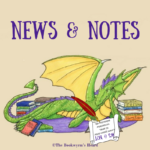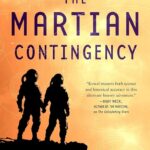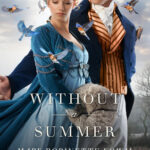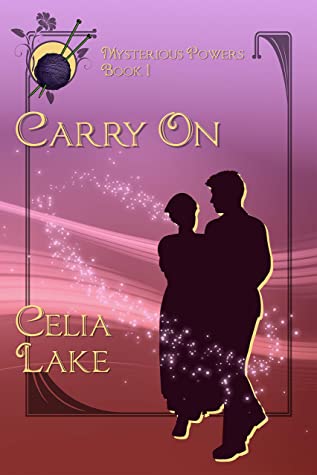 Women dominated the Hugos this year, winning all the fiction categories as well as graphic story and best related work. At least four of them are women of color, making this year’s Hugo Awards a resounding YES to diversity in science fiction and fantasy.
Women dominated the Hugos this year, winning all the fiction categories as well as graphic story and best related work. At least four of them are women of color, making this year’s Hugo Awards a resounding YES to diversity in science fiction and fantasy.
N. K. Jemisin won Best Novel for The Obelisk Gate. It’s her second Hugo in as many years, as she also won last year for the first book in the trilogy, The Fifth Season.
Seanan McGuire‘s Every Heart a Doorway won Best Novella, and Best Novelette went to Ursula Vernon for “The Tomato Thief.” Amal El-Mohtar won Best Short Story with “Seasons of Glass and Iron.” Marjorie Liu and Sana Takeda‘s Monstress Volume 1: Awakening took Best Graphic Story.
A new category, Best Series, was won by the Vorkosigan Saga by Lois McMasters Bujold. And Ada Palmer won the John C. Campbell Award for Best New Writer.
Ursula K. LeGuin won Best Related Work with Words Are My Matter: Writing About Life and Books, 2000-2016, a collection of the venerable fantasy author’s “talks, essays, introductions to beloved books, and book reviews” over the last 16 years.
The awards for Best Dramatic Presentation went to Arrival (screenplay by Eric Heisserer based on a short story by Ted Chiang, directed by Denis Villeneuve) for the Long Form, and “Leviathan Wakes,” an episode of The Expanse (written by Mark Fergus and Hawk Ostby, directed by Terry McDonough.)
Ellen Datlow and Liz Gorinsky received the Hugo for Best Editor (short form and long form respectively). And Julie Dillon won Best Professional Artist.
The Best Semiprozine, Fanzine, Fancast, Fan Writer, and Fan Artist awards were also dominated by women.
You can see a full list of winners and nominees at Tor.com.
What makes this year’s awards so significant is that it’s only been two years since the Sad Puppies and Rabid Puppies succeeded in hijacking the Hugo Awards, gaming the nominations and the voting to favor a slate of works and authors representing their narrow view of what SF/F should be. Essentially, they want a return to the pulp-fiction years when SF was dominated by white men writing stories that were long on action, science, and tech, but rarely featured women except in subordinate, objectified roles, almost never featured POC characters, and rarely dealt with questions of human culture and society (what one Puppy derisively described as liberal “message-fic.”) Of course, even in the early decades of SF, there were a few female authors, though some wrote under male pseudonyms in order to get published, and authors of both genders did occasionally tackle the type of “PC” topics that the Sad/Rabid Puppies object to. So the Puppies’ vision is to some extent a false as well as a narrow one. (By the way, if you are seeing a similarity between the Sad/Rabid Puppies and the wider resurgence of racism and sexism in America, you’re not not wrong, particularly regarding certain of the Rabid Puppies.)
The wider SF/F fandom was outraged by the takeover attempt, with some authors refusing to take part in the 2015 Hugos, even requesting that their nominations to the Sad or Rabid Puppies slate be withdrawn. While Puppy slates were offered in 2016, they did not succeed in dominating the nominations as thoroughly as the previous year, and their nominees were for the most part rejected by voters.* But this year’s nominations and winners are further proof that the wider fandom is strongly in favor of a genre that reflects the diversity of its readers and of the human race.
Ironically, by attempting to limit science fiction and fantasy to a narrow vision, the Sad and Rabid Puppies have encouraged the SF/F fandom to do just the opposite: to acknowledge and celebrate the diversity of the genre and its creators. After all, who wants to put limits on visions of the future or other worlds, or on the writers and artists who imagine them?
*To nominate or vote for a given year’s Hugo Awards, you must be a member of the World Science Fiction Convention for that year. Membership has two tiers: attending and non-attending. Attending costs more, but both allow you to nominate and vote.
Sources: Hugo Awards, Tor.com, The Guardian, Wikipedia







































Stephanie @ Don't be Afraid of the Dork
This was SOOOOO awesome! They are all wonderful works and it was such a resounding rejection of the puppies whole regressive agenda! Go Hugo voters! I was especially excited to see Bujold win the first series award – I love the Vorkosigan series – though a lot of the other nominated series were great too!
Stephanie @ Don’t be Afraid of the Dork recently posted…REVIEW | The Screaming Staircase by Jonathan Stroud
Lark_Bookwyrm
I know; I was so excited and happy to see such a firm rejection of the puppies’ agenda!
Jess@Fairday's Blog
Awesome to hear about all the diverse winners of this years Hugo Awards. Yeah! Go ladies. 🙂
Thanks for all the other information included in the post. I had no idea!
Lark_Bookwyrm
I’ve been interested in (and annoyed about) the Sad & Rabid Puppies thing since the 2015 Hugos. I first found out about it through several author blogs, and went and read some of the explanations that came out at the time, by both non-Puppies and Puppies. I think it’s pretty obvious that I’m not on the side of the Puppies, so I’m delighted with this year’s nominations (which were pretty diverse and wide-ranging, though a few Puppy nominations did make it onto the ballot) as well as with the voting results.